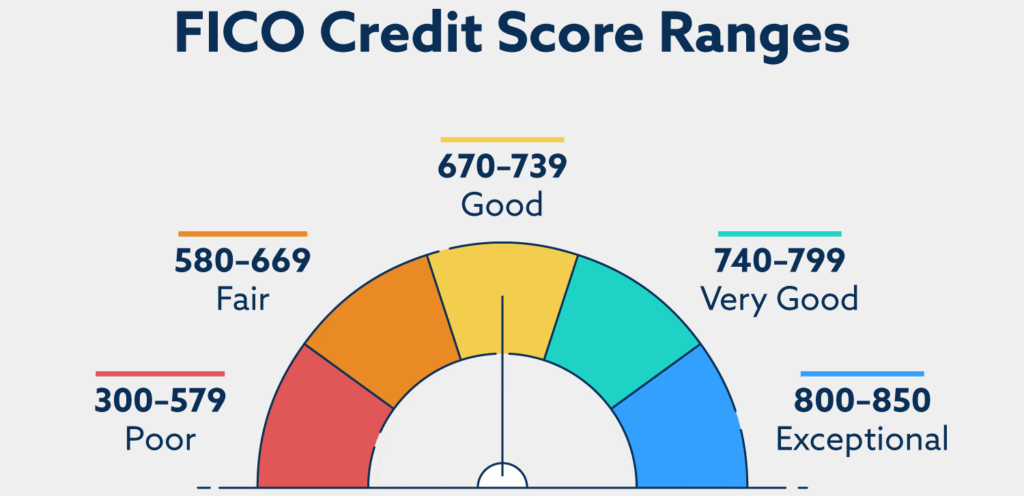Building Your Credit Score
In the US, protecting your credit score is just as important as protecting your passport.
Golden Rule: Never get yourself into unmanageable debt.
Your financial integrity is your passport to opportunity, so treat it with care.

A good starting point:
- Use no more than 30% of your available credit.
- It’s not just about how much you use – it’s about showing steady, responsible trends over time.
The Big Three Credit Bureaus
Your credit information is tracked by three main agencies: Equifax, Experian, and TransUnion.
The 5 Keys to Your FICO® Score
- Payment History – 35% of score
Your track record of paying bills matters most. Late or missed payments – especially if recent or frequent — will hit your score hard. - Amount of Debt – 30% of score
How much credit you’re using compared to what’s available (credit utilization) is critical. Keep balances low and spread across fewer accounts. - Length of Credit History – 15% of score
The longer your accounts have been open, the better. Both your oldest and average account age are considered. - New Credit – 10% of score
Opening many new accounts in a short period is risky in the eyes of lenders. Only apply when you really need it. - Credit Mix – 10% of score
A healthy variety of credit types (credit cards, loans, mortgage) shows you can manage different financial responsibilities.
Other Important Factors
- Credit Inquiries – Every time a lender checks your credit for a new application, it can lower your score. Avoid multiple applications close together.
- Public Records – Court records, rental agreements, car leases, and utility accounts are often reported. Pay on time, avoid partial payments, and stay in good standing.
How to Raise Your FICO® Score
Improvement takes consistency, but small steps add up.

1. Payment History
- Pay all bills on time – set up autopay if possible.
- If you’ve missed payments, catch up and stay current.
2. Credit Utilization
- Keep balances below 30% of your available limit.
- Pay down high-interest balances first.
- Make small payments throughout the month to keep utilization low.
3. Credit Mix
- A variety of account types is good, but don’t open too many new ones at once.
4. Other Tips
- Check for errors: Review your credit report regularly and dispute inaccuracies.
- Authorized user: If possible, become an authorized user on someone’s well-managed credit card.
- Experian Boost: Add on-time utility and phone payments to your credit profile.
- Be patient: Building (or rebuilding) credit takes time – steady habits win.
